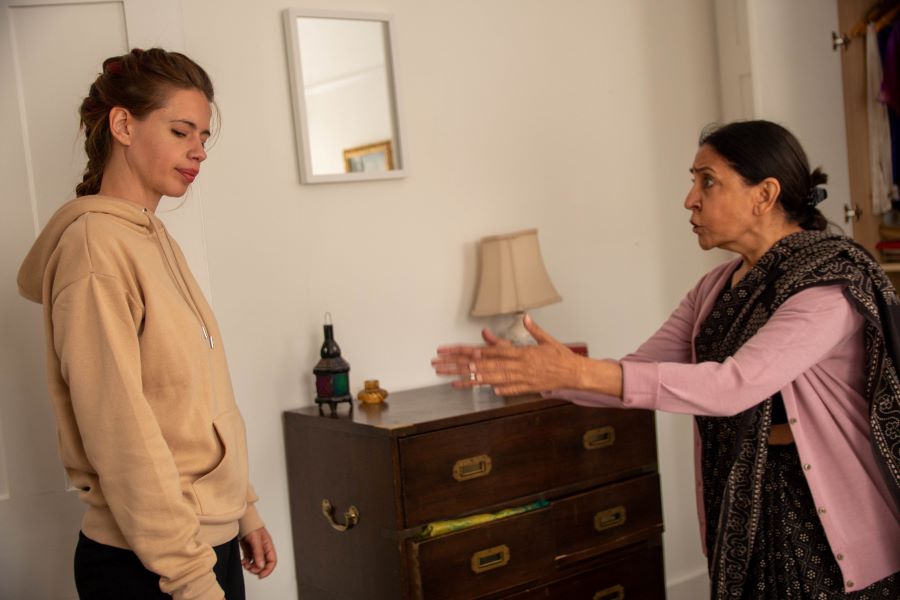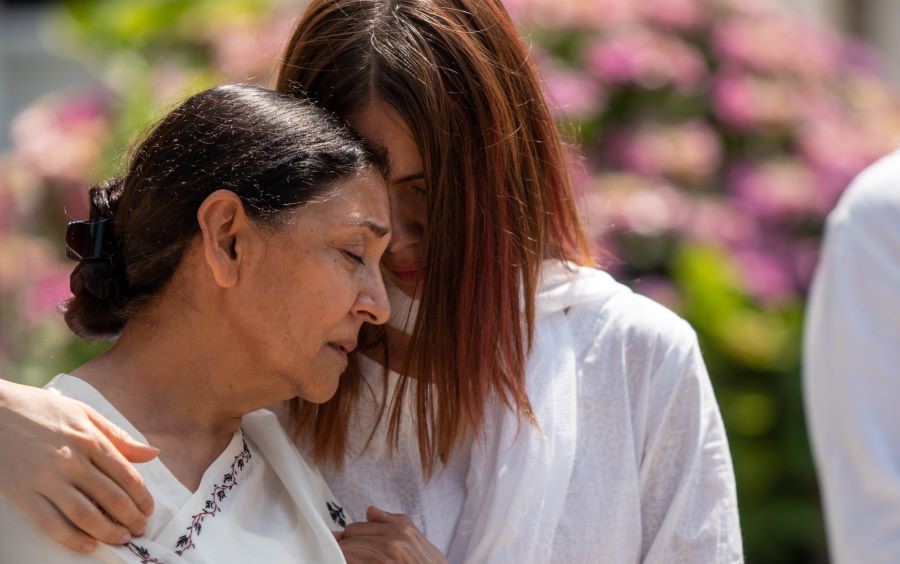BY MALA CHAKRAVORTY*
I was a little wary of watching Pushan Kripalani’s Goldfish, as I thought it would be an incredibly sad movie about dementia. It turned out to be an intensely personal experience that captivates, moves, and at times uplifts!
While aging and dementia are at the core of the story, the movie is a nuanced exploration of the complexities of relationships, where acrimony, resentment, and lack of communication coexist with deep love and a sense of responsibility. It is a story anyone with aging parents can relate to. And it is a story anyone imminently facing the uncertainties of what old age can bring on can also relate to.
The movie’s greatest strengths are the performances. Both Kalki Koechlin and Deepti Naval, ably supported by a strong cast of well-etched-out peripheral characters, are outstanding. Kalki has played broken characters several times in the past. Here, she gets the opportunity to carry the entire film. Goldfish is narrated from Anamika’s point of view, and Kalki effortlessly portrays the anger and anguish of a daughter confronted with the progressive mental degeneration of a mother who abandoned her emotionally. Enough cannot be said of the luminosity of Deepti Naval, playing a woman who is gradually losing her memories, her vocabulary, her sense of self. She emotes with her eyes, facial expressions, and body language, underplaying her debilitating condition with chilling effect. As Sadhana and Anamika confront each other on real and imagined wrongs each has inflicted on the other in the past, or support and take care of each other in the present, we see two artists at the top of their game.

The narrative style is all about pluralities. The movie balances silences with heated exchanges, darkness with light, stillness with frenetic activity, grief with laughter. There are no unnecessary explanations or moralizing; the only requirement from the audience is that they engage with the characters and situations they find themselves in without judgment and preconceptions of what is right and wrong. The dark subject matter is treated with humor and warmth, celebrating bonds between parents and children, between friends and neighbors even as it lays bare the deep wounds that people can inflict on their loved ones. As it depicts the isolation and loneliness of elderly immigrants, it also reinforces the importance of a supportive community that can help individuals cope with adversity and trauma.
Kripalani’s cinematic style is an interesting combination of blank screens and a smorgasbord of the minutiae of life. The house itself with its narrow passages, tiny bedrooms, blank walls, and cluttered spaces is representative of Anamika’s claustrophobia and Sadhna’s blurring memories. All of our senses are kept on alert! We can taste the fragrant tea as it brews for the 4 pm ritual, smell the cigarette that connects Anamika to her father, feel the textures of the silk sarees that Sadhna wears, hear the rhythms of Indian classical music that is always playing in the living room. There is no linear progression; what we get is a constant pull and push dynamism of the mother and daughter relationship, depicted with tenderness and sensitivity as the two move from bitterness to understanding to acceptance.
I personally felt the emotionally satisfying ending was a bit contrived. Was the intention to leave us with hope? Perhaps it is possible to heal fractures and overcome circumstances, even those beyond our control! The pragmatist in me feels that this hope is unrealistic; the optimist wants to believe that can happen. All that being said, Goldfish is an experience that I will highly recommend to anyone who enjoys thought-provoking movies.
Cast: Kalki Koechlin, Deepti Naval, Gordon Warnecke, Rajit Kapoor, Shanaya Rafaat
Director: Pushan Kripalani
* Mala Chakravorty has a Ph.D. in American Women’s fiction from I.I.T. Delhi, and Master’s degrees in English and American Studies from Delhi University and Smith College, Massachusetts. She has worked in the School of Women’s Studies, Jadavpur University, Kolkata, and Women’s Studies Program at the University of Hawai’i at Manoa, Honolulu. She switched from academics to Information Technology in 1999.





